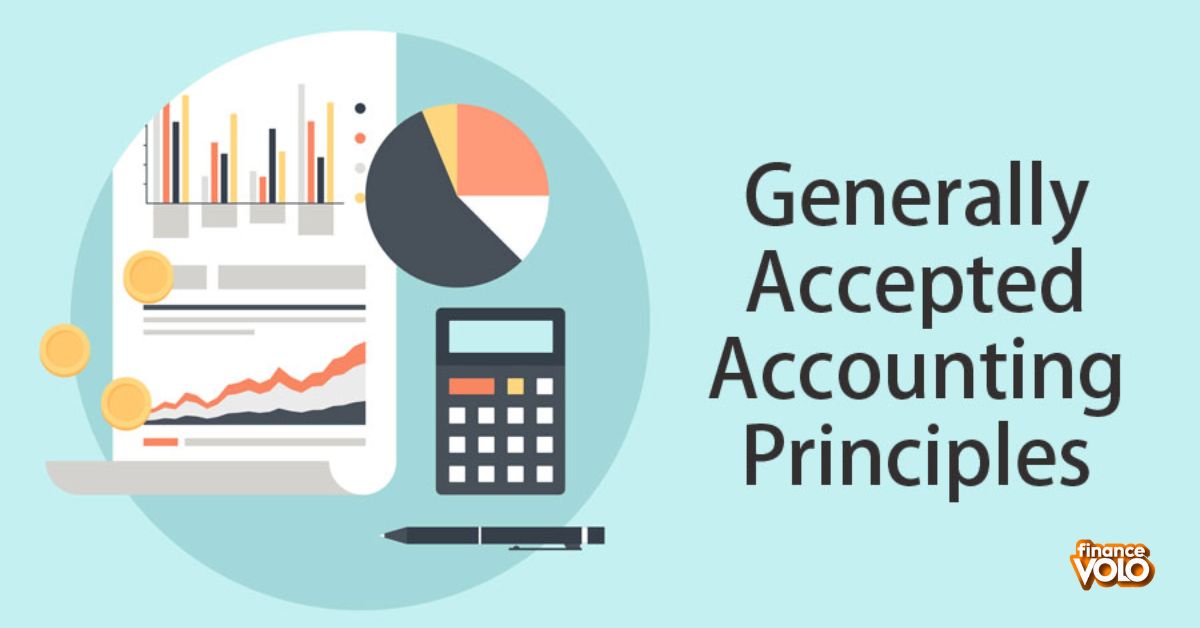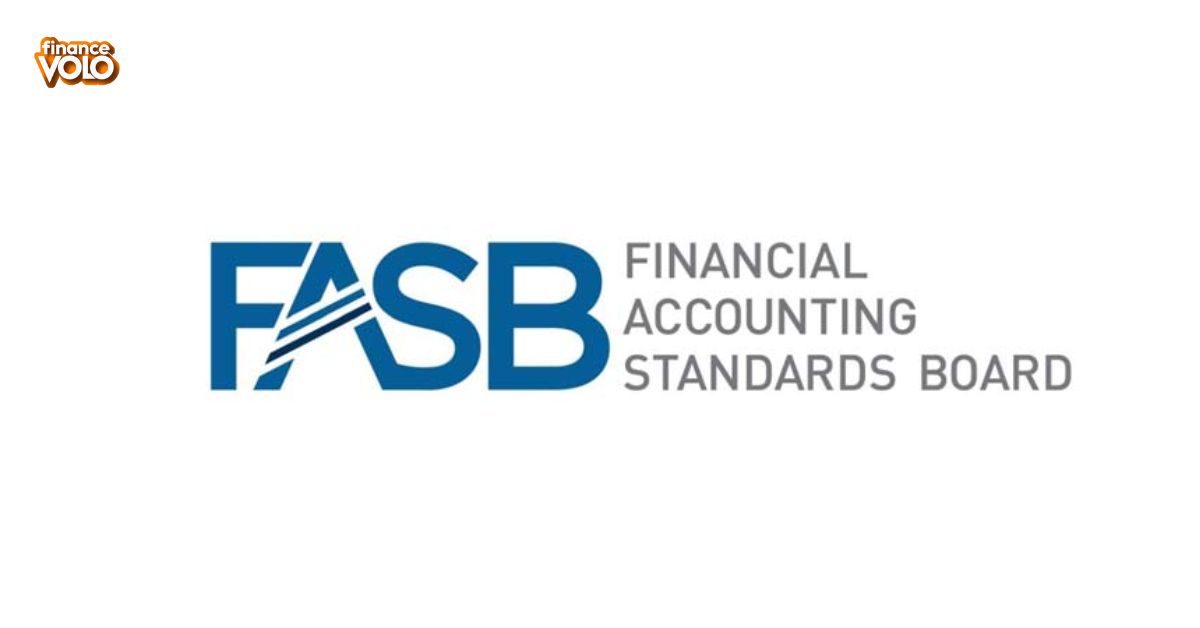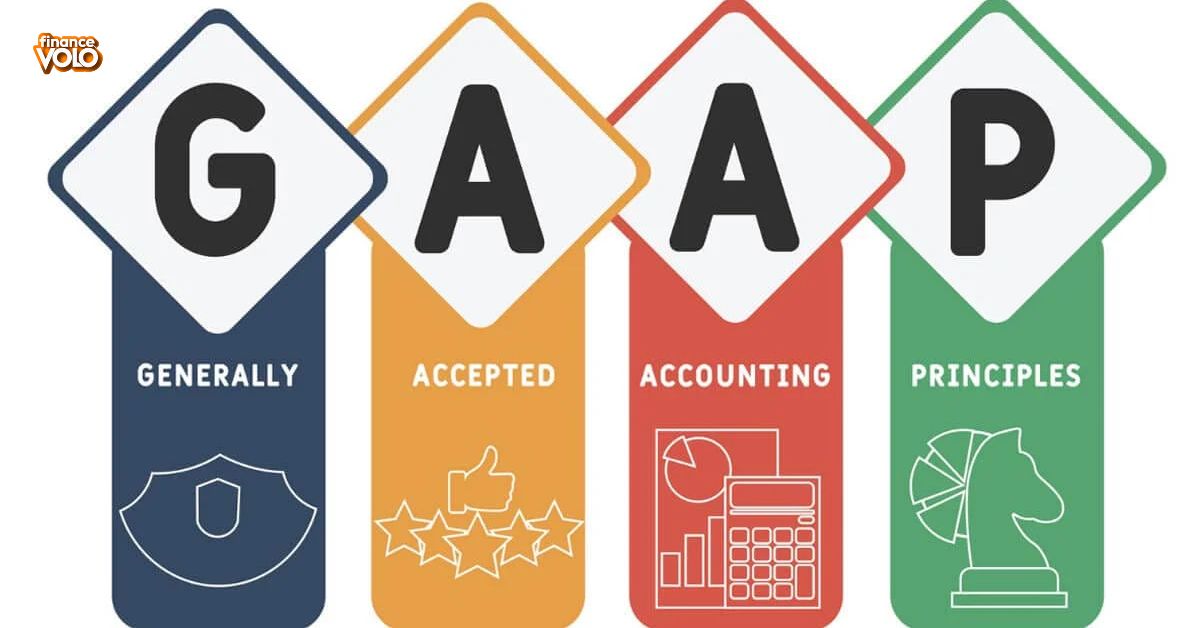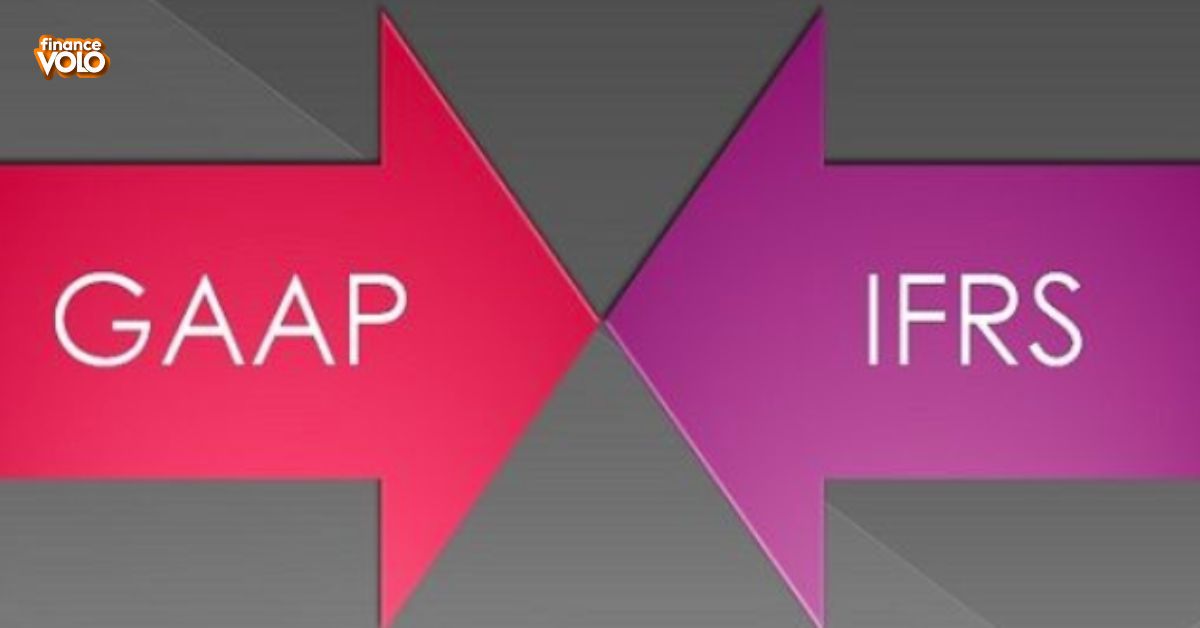GAAP, or Generally Accepted Accounting Principles, is the cornerstone of financial reporting standards. Established by the Financial Accounting Standards Board (FASB), GAAP provides guidelines for companies to prepare and present their financial statements consistently.
It ensures transparency and accuracy in financial reporting, fostering trust in financial markets. From revenue recognition to disclosure practices, GAAP shapes how businesses communicate their financial health to stakeholders. Understanding GAAP is essential for anyone involved in accounting or financial management, as it offers a reliable framework for interpreting and analyzing financial data.
Financial Accounting Standards Board (FASB)
The Financial Accounting Standards Board (FASB) is like the referee in the game of financial reporting, ensuring that everyone plays by the same rules. Established in 1973, this independent organization sets the standards for financial accounting and reporting in the United States.
Think of them as the architects behind the scenes, shaping the guidelines that govern how companies prepare and present their financial statements. Their mission? To provide transparent, relevant, and reliable financial information that investors and stakeholders can trust. So, next time you’re reading a company’s annual report, you can thank the FASB for making sense of those numbers!
Financial Accounting Foundation (FAF)
Meet the Financial Accounting Foundation (FAF), the unsung hero behind the scenes of financial reporting. Founded in 1972, the FAF serves as the backbone of oversight for the Financial Accounting Standards Board (FASB) and the Governmental Accounting Standards Board (GASB).
Picture them as the guiding hand, ensuring that accounting standards evolve with the changing times and needs of the financial world. Their mission? To foster confidence in financial reporting by promoting transparency, accountability, and integrity. So, next time you’re poring over financial statements, remember that the FAF is working tirelessly to keep the financial world spinning smoothly.
Why Were Accounting Regulations Created?
Well, let’s rewind a bit. Back in the early days of commerce, things were a bit chaotic. Companies were reporting their financials however they pleased, which made it impossible to compare one company’s performance to another’s. That’s where accounting regulations stepped in.
They were created to bring order to the financial world, ensuring that companies follow consistent rules when reporting their financial information. These regulations aim to promote transparency, accuracy, and fairness in financial reporting, ultimately fostering trust among investors and stakeholders.
Generally Accepted Accounting Principles
Ah, Generally Accepted Accounting Principles (GAAP), the backbone of financial reporting. These principles are like the golden rules that guide accountants in preparing and presenting financial statements. Well, it’s because these principles have been developed over time through consensus among accounting professionals, regulators, and standard-setting bodies.
Think of them as the standard playbook that ensures everyone is on the same page when it comes to financial reporting. Without GAAP, financial statements would be like a puzzle with missing pieces, making it impossible to understand a company’s financial health.
GAAP Compliance
GAAP compliance is like following the traffic rules on the road of financial reporting. It ensures that companies play by the same set of standards, making it easier for investors and stakeholders to understand and compare financial information. By adhering to GAAP, companies demonstrate their commitment to transparency, accuracy, and integrity in financial reporting.
It’s like having a common language in the world of finance, where everyone speaks the same financial dialect. So, next time you’re reading a company’s financial statements, remember that GAAP compliance is the key to unlocking trust and credibility.
GAAP vs IFRS
GAAP vs IFRS. GAAP, or Generally Accepted Accounting Principles, is the standard bearer in the United States, while IFRS, or International Financial Reporting Standards, reigns supreme internationally. While both aim for the same goal, transparent financial reporting they have their differences.
GAAP tends to be more rule-based, providing detailed guidelines for specific transactions, while IFRS takes a principles-based approach, offering broader principles open to interpretation. It’s like comparing a recipe book with exact measurements to a cooking philosophy based on creativity and intuition.
Differences Between GAAP vs IFRS Accounting Rules
When it comes to accounting, GAAP and IFRS may seem like two peas in a pod, but they have their fair share of differences. One key distinction lies in their approach: GAAP is like a detailed map, offering specific guidelines for various transactions, while IFRS takes a more flexible route, providing overarching principles open to interpretation.
GAAP tends to focus more on historical cost, valuing assets based on their original purchase price, while IFRS allows for more revaluation, reflecting assets’ current market values. It’s like comparing a strict rulebook to a set of guiding principles you choose which path suits your financial journey best.
What Is Non-GAAP Accounting?
Non-GAAP accounting. Simply put, it’s like adding a sprinkle of creativity to your financial reporting. While GAAP provides the standard rules for financial reporting, Non-GAAP accounting allows companies to present their financial results in a way that might better reflect their performance or provide additional insights.
Think of it as an optional side dish to the main course of GAAP reporting. It’s not mandatory, but it can offer a different perspective on a company’s financial health. So, next time you see Non-GAAP in a financial report, remember it’s like a little seasoning to spice up the numbers.
Why GAAP Accounting Matters For Your Business
Let’s dive into why GAAP accounting is more than just a fancy term; it’s like the sturdy foundation of a skyscraper for your business. First off, GAAP compliance signals to investors and stakeholders that your financial reporting is rock solid and trustworthy. It’s like building a reputation for reliability and transparency in the financial world.
Plus, adhering to GAAP standards ensures consistency and comparability in financial reporting, making it easier for others to evaluate your company’s performance. So, whether you’re a startup or a seasoned corporation, embracing GAAP accounting is like securing a solid foothold in the world of finance.
How Is GAAP Used in Accounting?
GAAP isn’t just a set of dusty old rules, it’s like the blueprint that guides accountants in crafting financial statements. Think of it as the rulebook that ensures everyone plays by the same standards when it comes to reporting financial information.
From recognizing revenue to valuing assets, GAAP provides the guidelines that accountants follow to keep financial reporting consistent and reliable. So, the next time you’re reading a company’s financial statements, remember that GAAP is the glue that holds everything together, ensuring transparency and accuracy in the world of accounting.
Why is GAAP important?
The importance of GAAP is to think of it as the universal language of finance, ensuring everyone speaks the same financial dialect. By adhering to GAAP standards, companies showcase their commitment to transparency and reliability in financial reporting. It’s like building trust among investors and stakeholders, providing them with a solid foundation to evaluate a company’s financial health.
Plus, GAAP promotes consistency and comparability in financial statements, making it easier for everyone to understand and analyze financial information. So, next time you hear about GAAP, remember it’s like the guardian angel of financial reporting, ensuring accuracy and integrity every step of the way.
What are the rules of GAAP In Accounting?
Here are some rules of GAAP accounting
- Regularity: Adhering to GAAP standards as the norm.
- Consistency: Maintaining consistent application of standards across reporting periods.
- Sincerity: Providing an accurate depiction of the financial situation without bias.
- Permanence of Methods: Committing to consistent accounting procedures.
- Non-Compensation: Transparently reporting both positives and negatives without bias.
- Prudence: Reporting only factual financial data without speculation.
- Continuity: Assuming business continuity when valuing assets.
- Periodicity: Distributing entries across appropriate reporting periods.
- Materiality: Fully disclosing all financial data and accounting information.
- Utmost Good Faith: Presuming honesty in transactions and reporting.
What Are the 4 Principles of GAAP Accounting?
Costs
Costs in GAAP accounting refer to the accurate reflection of expenses incurred by a company during its operations. It’s like keeping track of all the pennies spent, ensuring that financial statements accurately represent the resources consumed in generating revenue. So, whether it’s office supplies or employee salaries, every cost counts towards painting a clear financial picture.
Revenue
Revenue is like the lifeblood of a business, flowing in from the products or services it offers. It’s not just about the money, it’s about recognizing when that money enters the company’s coffers, ensuring accurate financial reporting and a clear picture of its financial health.
Matching
Matching is like the puzzle piece that ensures expenses are matched with the revenues they generate. It’s about timing expenses that should be recorded when they contribute to earning revenues. Think of it as a synchronized dance where every step (expense) corresponds perfectly with the music (revenue), creating a harmonious financial picture.
Disclosure
In accounting, disclosure is like opening the curtains on your financial information. It’s about transparency, revealing all relevant financial data and accounting information. By doing so, companies build trust with investors and regulators, ensuring a clear understanding of their financial position and performance.
What Is An Example Of GAAP Accounting?
- Recognizing revenue based on when it’s earned rather than when it’s received.
- Reporting expenses when they are incurred, not necessarily when they are paid.
- Valuing assets at their original cost rather than market value.
- Disclosing all relevant financial information in footnotes to the financial statements.
- Ensuring consistency in financial reporting across different periods.
Is GAAP In Accounting Legally Binding?
While GAAP isn’t technically a law, it’s more like the golden standard that most companies follow voluntarily. However, for publicly traded and regulated entities in the US, adhering to GAAP is mandatory under the Securities and Exchange Commission regulations.
It’s like a badge of honor for companies, showcasing their commitment to financial transparency and reliability, often instilling confidence in investors and stakeholders alike. So, while not legally binding for everyone, GAAP compliance is often the preferred path for businesses navigating the financial landscape.
Who Sets GAAP In Accounting Standards?
Meet the Financial Accounting Standards Board (FASB) and the Governmental Accounting Standards Board (GASB). These boards are like the architects of financial reporting, responsible for setting and updating GAAP standards. They’re independent, non-governmental entities appointed by the Financial Accounting Foundation (FAF), ensuring objectivity and expertise in developing accounting principles.
With their guidance, companies can navigate the complex world of financial reporting, adhering to standardized practices that promote transparency and comparability across industries.
Does GAAP Accounting Allow Revaluation Of Real Estate?
Under GAAP, real estate is typically valued at cost and not revalued to market value. Unlike International Financial Reporting Standards (IFRS), GAAP doesn’t generally permit the revaluation of real estate.
It’s like sticking to the original purchase price rather than adjusting for changes in market value over time. While IFRS allows for revaluation, GAAP tends to lean towards a more conservative approach in this regard, focusing on historical cost rather than current market value.
Incorporating GAAP Into Your Business With Baremetrics
Baremetrics has your back! With its user-friendly interface and robust features, Baremetrics simplifies the process of GAAP reporting for businesses of all sizes. From tracking revenue recognition to generating GAAP-compliant financial statements,
Baremetrics streamlines the entire accounting process. It’s like having a dedicated financial advisor in your pocket, guiding you through the complexities of GAAP compliance with ease. So why fret over financial reporting when Baremetrics can make it a breeze? Dive in today and take your accounting game to the next level
Which Financial Statements Are Required Under GAAP?
When it comes to financial reporting under GAAP, three key statements take the spotlight: the income statement, balance sheet, and cash flow statement. These statements offer a comprehensive view of a company’s financial health. The income statement showcases revenue, expenses, and profitability over a specific period.
The balance sheet presents assets, liabilities, and shareholder equity, revealing the company’s financial position at a given moment. Lastly, the cash flow statement tracks cash inflows and outflows, providing insights into liquidity and operational efficiency. Together, these statements form the backbone of GAAP-compliant financial reporting, offering transparency and clarity to stakeholders.
What Is a GAAP In Accounting Balance Sheet?
A GAAP accounting balance sheet serves as a snapshot of a company’s financial position at a specific point in time. It lists assets, liabilities, and shareholder equity, providing insights into the company’s resources and obligations. Assets include everything from cash and investments to property and equipment, while liabilities encompass debts and obligations.
Shareholder equity represents the residual interest in the company’s assets after deducting liabilities. Together, these components paint a clear picture of the company’s financial health, guiding decision making and offering transparency to investors and stakeholders.
How Do I Get GAAP Accounting Certified in the US?
Udemy
Udemy offers affordable courses tailored to CPAs and accounting professionals. With comprehensive lessons and flexible learning options, Udemy makes it easy to grasp complex accounting concepts at your own pace. Dive into GAAP today and unlock your full potential
Cpgma
CPGMA provides targeted online courses for finance professionals, focusing on GAAP fundamentals. With offerings like the US GAAP Fundamentals for Finance Professionals, priced affordably at $399, you can sharpen your skills and advance your career with confidence.
Educba
EduCBA’s self-learning courses, starting at $29, offer accessible education on GAAP practices. Perfect for beginners or professionals seeking to master GAAP principles at their own pace.
Ernst & Young
Ernst & Young provides an 8-hour online course culminating in a certificate. With their comprehensive program, you can enhance your understanding of GAAP accounting and advance your career in finance with confidence.
Limitations Of GAAP
Despite its advantages, GAAP has certain limitations. Originally designed in the 1980s, GAAP primarily caters to businesses with physical assets, posing challenges for modern digital enterprises with intangible assets like software.
As a result, some aspects of digital business operations, such as software development expenses and revenue recognition, may not be adequately addressed by traditional GAAP standards, necessitating supplementary metrics and reporting methods.
Related Post: What Is Accounting?
Frequently Asked Questions
What is GAAP In Accounting?
GAAP stands for Generally Accepted Accounting Principles. It’s a set of standardized accounting principles, standards, and procedures that companies use to compile their financial statements in the United States.
Why Is Gaap Important?
GAAP ensures consistency, comparability, and reliability in financial reporting, fostering trust in financial markets and facilitating accurate analysis of a company’s performance.
Who sets GAAP standards?
GAAP standards are set by the Financial Accounting Standards Board (FASB) in the United States.
Is GAAP legally binding?
While GAAP itself is not legally binding, publicly traded and regulated companies in the US must adhere to GAAP standards as prescribed by the Securities and Exchange Commission (SEC).
How does GAAP differ from other accounting standards?
GAAP differs from other accounting standards such as International Financial Reporting Standards (IFRS) primarily in its application and geographic scope, with GAAP being specific to the United States.
Related Post: What Is The Accounting Equation
Final Words
GAAP, or Generally Accepted Accounting Principles, represent a set of standardized guidelines followed by U.S. companies for financial reporting. These principles, established by the Financial Accounting Standards Board (FASB), ensure consistency and accuracy in financial statements, fostering transparency and trust in the financial markets. They cover various areas such as revenue recognition, expense recording, and asset valuation.
While GAAP compliance is not legally binding, publicly traded companies are required by the Securities and Exchange Commission (SEC) to adhere to these principles. Essentially, GAAP serves as a framework for preparing financial statements, enabling stakeholders like investors and creditors to assess a company’s financial health and performance accurately.















